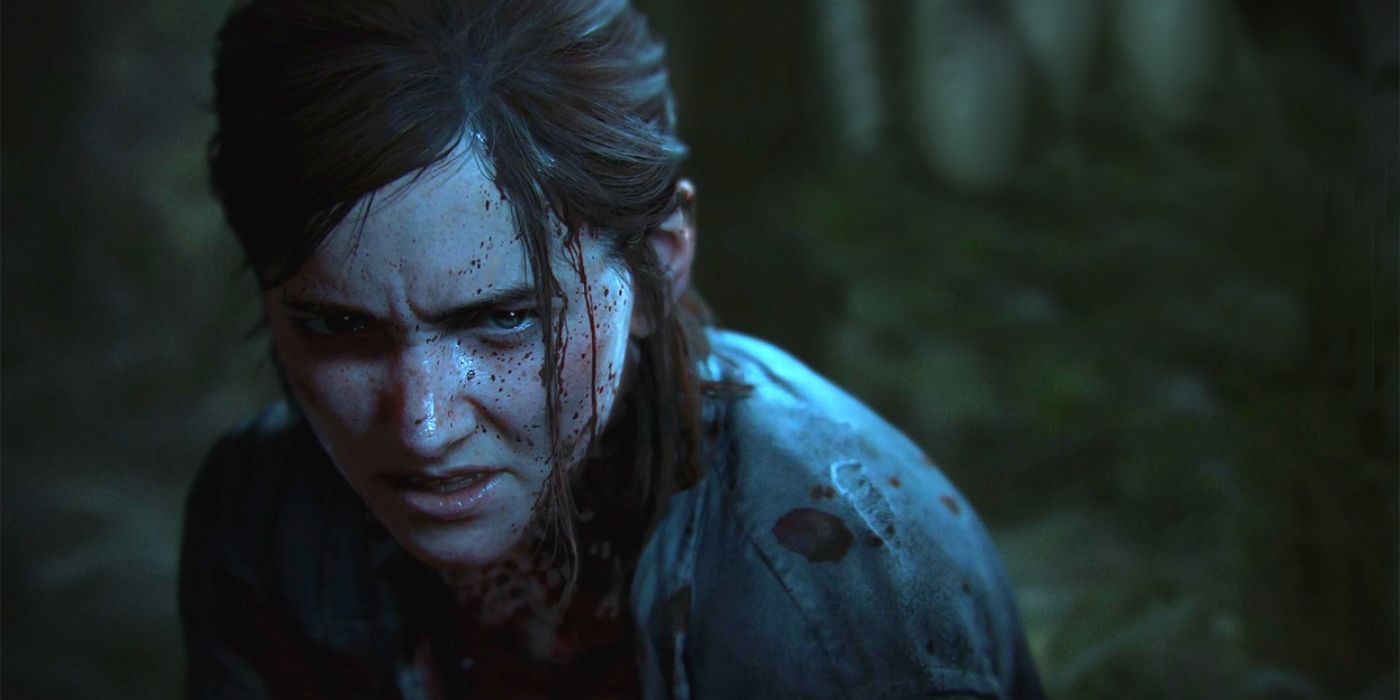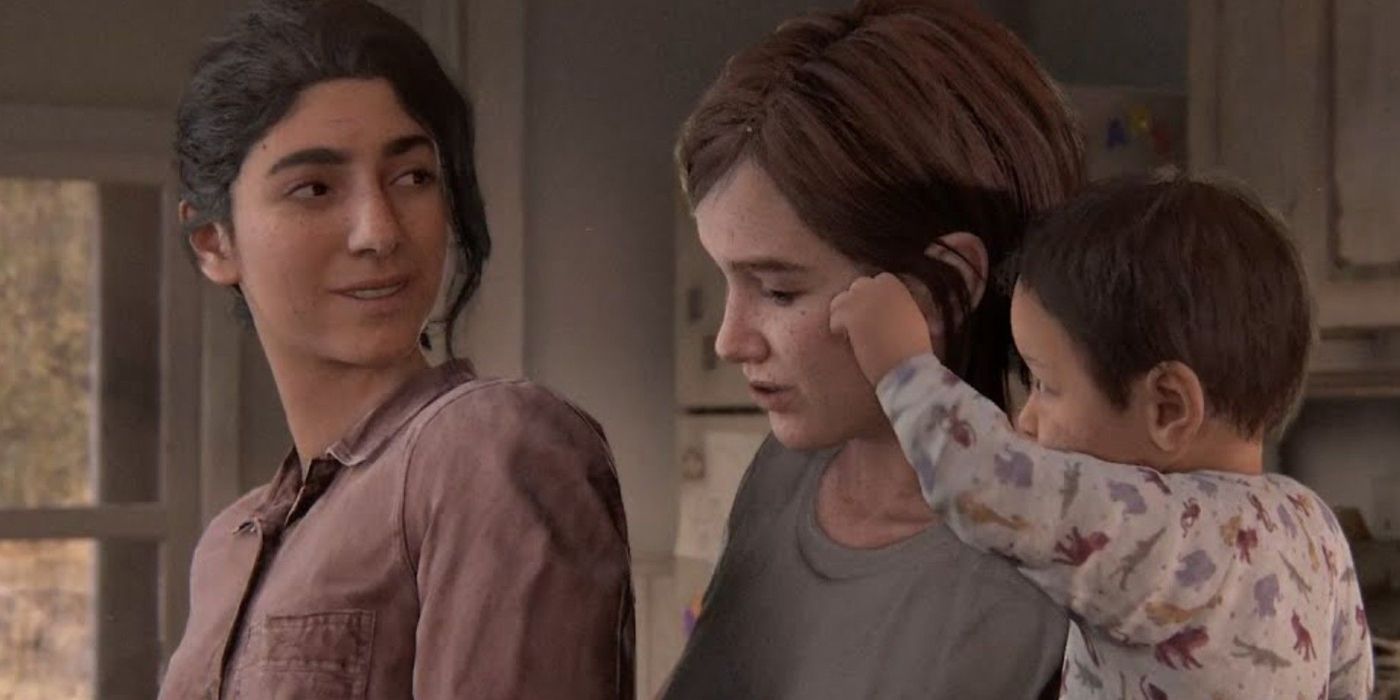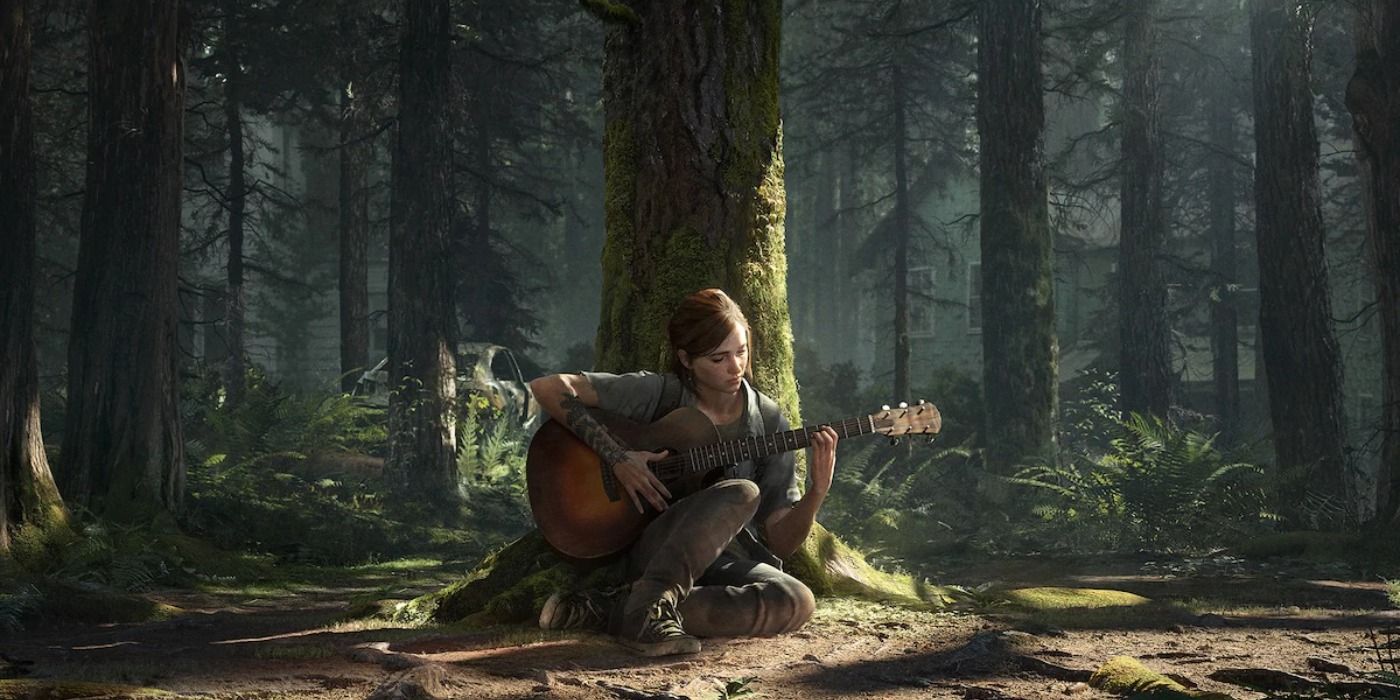The Last of Us 3: Ellie Can't Be the Same Character | Game Rant

As a series, The Last of Us has never shied from difficult questions with unpleasant answers. The first game asked players to consider how far they would go to protect their loved ones, and, more crucially, what happens when they failed. And the sequel, more brutally, asks players to consider how far they would go in the service of vengeance. As the series' most frequent protagonist, Ellie is the primary avatar for navigating those hard topics, but now that the credits have rolled on The Last of Us Part 2, where can her story go from here?
In certain respects, one could argue that Ellie's story has reached a natural point of repose, and that Abby may actually be a better lead for The Last of Us Part 3. Ellie has not only been ruthlessly traumatized and tortured, but has done the same to others in turn. She has sacrificed a lover, deadened her empathy, and damaged her sanity to satisfy a thirst for revenge, only to realize that the closure it provides is an illusion at best. That epiphany costs her everything, and in many respects, she has arrived at the same bleak place Joel occupied after losing his daughter.

While The Last of Us is almost relentlessly grim, the games are emotionally captivating because they temper their brutality with moments of tenderness and stubborn, desperate hope. A happy ending for Ellie is likely asking too much of the world she lives in, but there is a possibility that she can attain some measure of restive peace by continuing to grow. In order for that to happen though, Ellie needs a catalyst per the series formula. Like Joel, she needs a cause to transform surviving into living. Few things are more therapeutic than helping others, and after everything she has endured, Ellie deserves some therapy.
The trap that Ellie avoids, the persistent spark of hope at the end of The Last of Us Part 2, is the realization that killing Abby won't bring her peace. It won't ease her survivor's guilt for the whole of humanity. It won't undo the trauma she's inflicted on herself by harming and killing others, but that does not mean that the rage that drove her to that point will evaporate. Ellie has always had a temper. After losing Dina and JJ, and abandoning her target, that anger will likely turn inward. To overcome that anger, Ellie needs to channel her energy into a new cause. For Joel, Ellie was that cause, allowing him to see past his own troubles and cherish a life that still had potential.

The most obvious potential cause Ellie could take up and the most prominent of The Last of Us 2's many hanging threads is the departure of Dina and JJ. But it seems highly unlikely that Naughty Dog would wash away the hurt Ellie inflicted and allow the characters to pick up where they left off before the events of Santa Barbara. Dina might be willing to take Ellie back, but Ellie's guilt (and fear of her own anger and PTSD) might prevent her from making the attempt.
It is possible, however, that an older JJ would later seek out Ellie if Dina was ever in danger. After all, she has proven herself to be a relentless, almost supernaturally capable fighter, tracker, and survivalist. This could lead Ellie on a quest for redemption, but that narrative seems a bit too neat. Pushing another troubled kid on Ellie, especially after Abby is forced into a similar situation protecting Lev in The Last of Us 2, seems too repetitive, even if it is structurally elegant.
In The Last of Us Part 3, Ellie must not only come to terms with her relationship with Joel, but step out of his shadow. To accomplish this, The Last of Us Part 3 should return to the broader stakes of the first game. While Joel and Ellie's bond was the heart and soul of the story, Ellie represented a potential solution to the broken world around her. And even though she has ultimately rejected the role of humanity's sacrificial lamb, it would be refreshing to see her return to a role that extends beyond her immediate relationships and personal well-being.

Ellie is a teenager in the first game, a child edging into adulthood, whose agency is still beholden to adults. In the second game, fans see Ellie make her own decisions as a young adult, though the collateral damage of her decisions only extend to her immediate relationships. In the third game, assuming it continues this trend, Ellie must take on responsibility for others and attempt to build something that will last. It would be interesting to see Naughty Dog take a different tactic with the third installment, focusing on a narrative of construction rather than journeying.
It is not difficult to imagine Ellie as a gruff and salty yet noble leader of a survivor enclave like Jackson. Rather than trekking across the country, Ellie could try to build up a community of people. Missions could see her ranging into the wilderness for supplies, fighting off incursions of infected, and ultimately choosing the town's stance in a power struggle between the game's manifold factions. The ending of The Last of Us 2 leaves many loose threads hanging, but it also strongly implies the Fireflies are still active, and likely still looking for a cure.
For better or worse, Joel deprived Ellie of the choice to be the source of the cure, which is appropriate for a child too young to fully appreciate the gravity of that decision. But if Ellie is confronted with the same choice as an adult—with the fate of the life she has built possibly hanging in the balance—would she still stand by Joel's decision? He showed her that a person can still be a hero without being a martyr, but Abby demonstrated heroism always has severe consequences. So what path Ellie will choose in light of those lessons? If composer Gustavo Santaolalla's sentiments are any indication, The Last of Us 2 is still only the beginning of Naughty Dog's heart-wrenching saga, and it will be fascinating to meet who Ellie becomes next.
The Last of Us Part 2 is available now for PlayStation 4.

Post a Comment